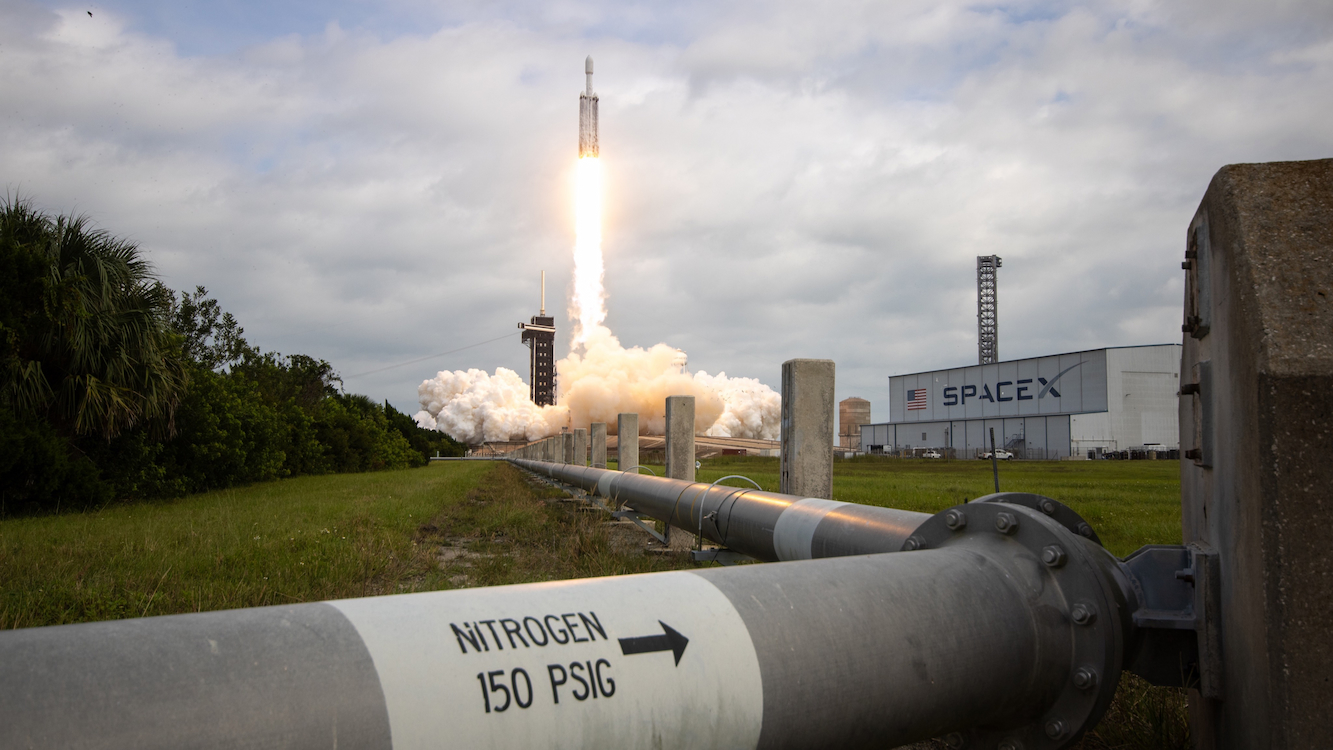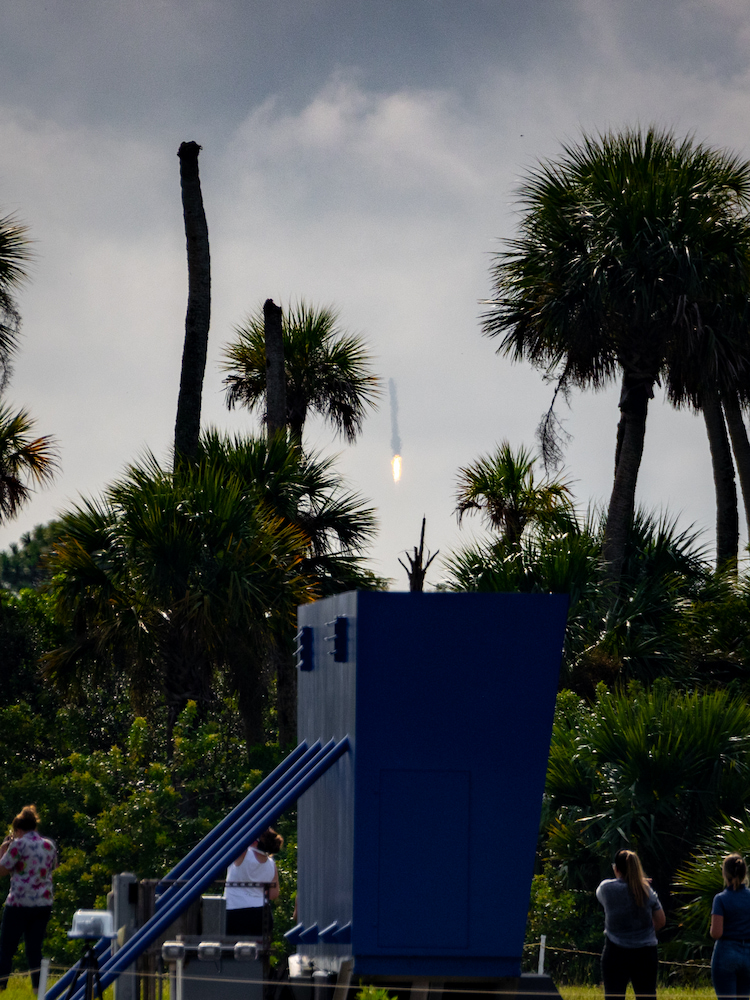
After dodging some harsh weather, NASA’s Psyche spacecraft lifted off from the historic LC-39A launch pad at 10:19 A.M. ET on SpaceX’s Falcon Heavy rocket. After being delayed a year, the spacecraft is finally on its way to an asteroid, of the same name, to do some good old science.
NASA Psyche on its way to a rather curious asteroid
Launched on SpaceX most powerful operational rocket, the Falcon Heavy, NASA Psyche is now on a six year journey to the asteroid Psyche. At 10:19 A.M. ET, SpaceX’s fourth Falcon Heavy of the year lifted off from NASA’s historic LC-39A, the same launch site that saw many Apollo and Space Shuttle missions. It’s also the same pad that SpaceX launches its crewed Dragon missions from.
If you’ve never seen a Falcon Heavy launch, it is truly a spectacle of modern engineering. Using three Falcon 9 cores, the rocket lifts off the pad before separating the two side boosters for an RTLS landing. Those two boosters boost back towards Florida’s Space Coast for a near simultaneous landing at SpaceX’s LZ-1 and 2 at Cape Canaveral Space Force Station. The center core continues on to be expended into the Atlantic Ocean.

After being delayed by a year because the spacecraft was not ready to make its annual launch window, Psyche was delayed another week due to new data being found that could have made the spacecraft’s thrusters overheat and be damaged. With those issues solved, the spacecraft can now begin its journey to an asteroid that has some rather interesting characteristics.
Believed to be made of metal, the asteroid cold actually be a remnant of a planet that had its mantel stripped away during the early formation of the solar system. Similar to our solid core here on Earth, there actually could be a lot of similarities between our’s and Psyche. And because we know how to fly in space, it’s actually much easier to fly to Psyche than dig down to our own core.
Join our Discord Server: Join the community with forums and chatrooms about space!
NASA testing several hypothesis about Psyche
Psyche is a great example of the scientific theory in the real world. From everything scientists have studied from observing it, they believe that it is made out of metal but they aren’t 100%. So one of the items Psyche will be attempting to do is determine what its asteroid is made out of. Sadly no sample return is planned but if it is all metal, NASA, or another agency or a private company, might set its eyes on it for future missions.
Some other items Psyche will study will be if it still has a magnetic field, that will actually be one of the first items it will look for. As well as study its gravity and take some photos.
Tagging along Psyche is NASA’s Deep Space Optical Communication tech demonstration mission. I talked in detail about this in out latest YouTube video with the mission’s manager, but its a rather cool addition.
DSOC will test NASA’s ability to use lasers to communicate with the Psyche spacecraft as it moves in its orbit near Mars. NASA has previously tested this technology on the ISS and in the Moon’s orbit but this is the first time NASA will attempt to track the spacecraft as it moves in its orbit.
While DSOC won’t allow us to communicate any faster with our spacecrafts as it will be similar to the current technology, radio waves. DSOC will allow NASA to have a lot more bandwidth allowing for more science, photos, and maybe even video to be streamed to Earth at once.
Over the next year DSOC’s mission will be the big item to watch as they start testing communicating with Earth. Psyche’s mission has some time before we’ll see any major updates format. By the time it arrives at the Psyche asteroid, the articles about it might be fully written by AI (for my own job I hope not).
FTC: We use income earning auto affiliate links. More.

Comments